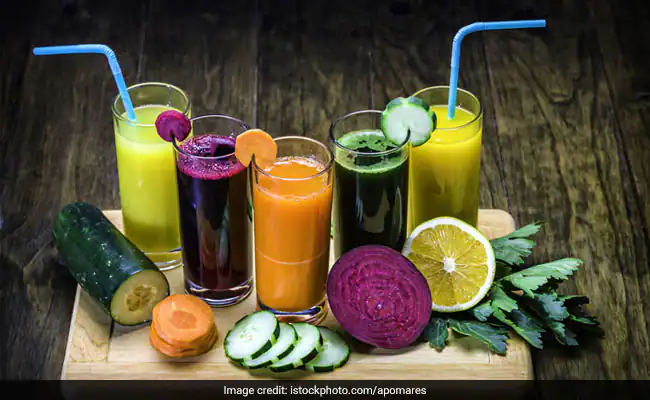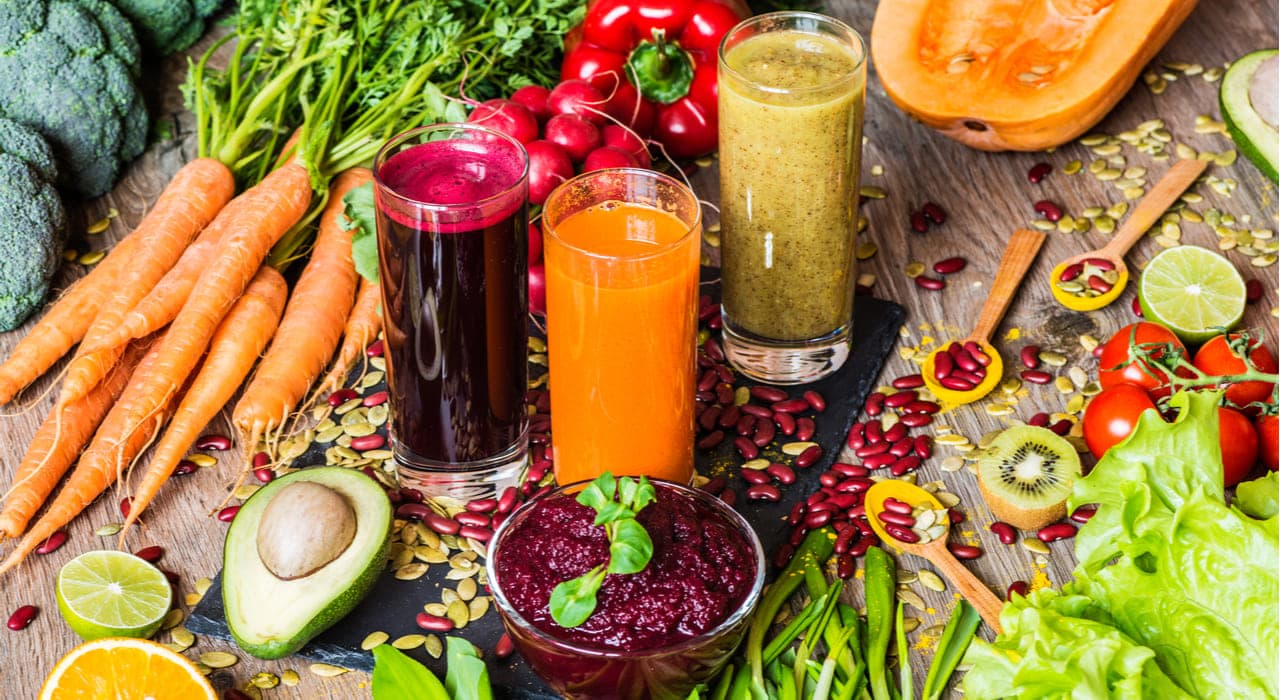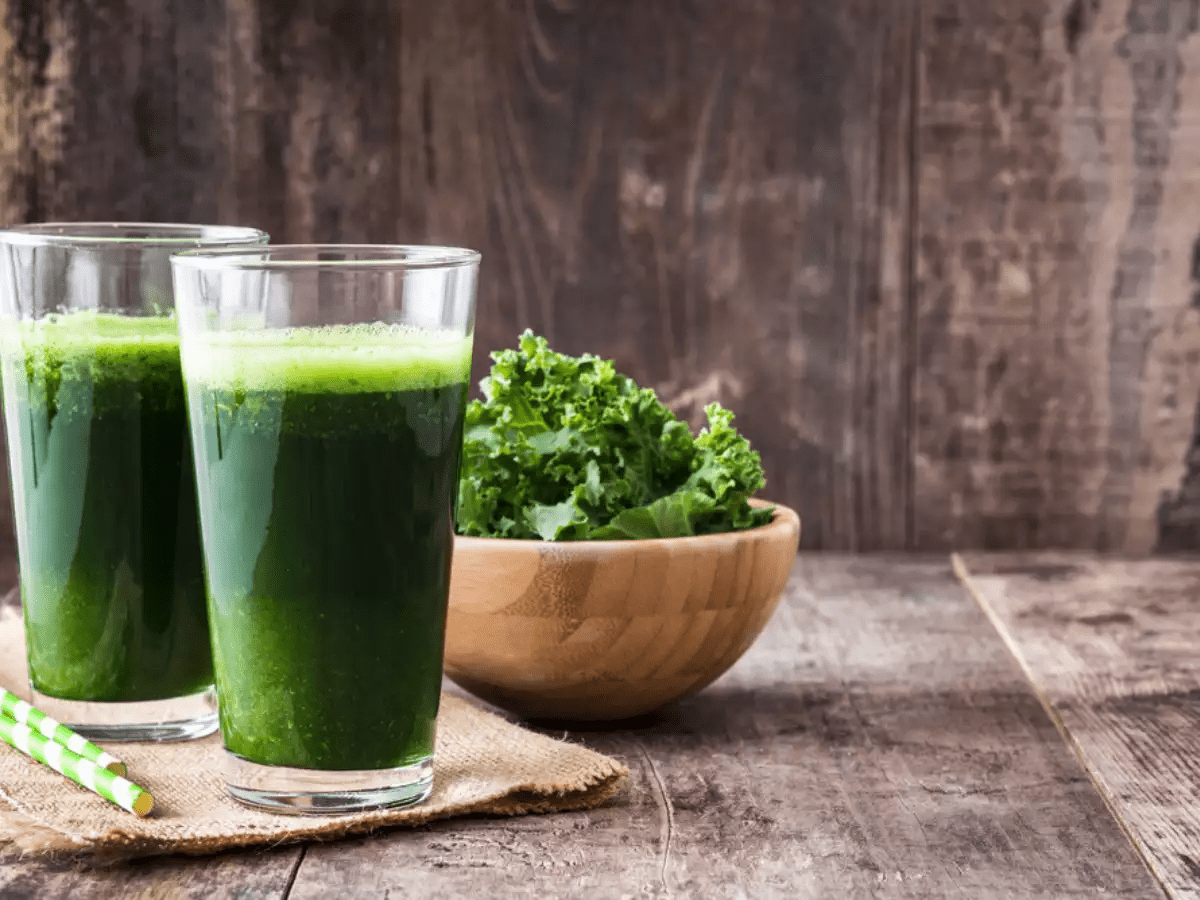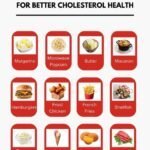Juicing is a great way to boost your daily intake of fruits and vegetables and can be an effective way to lower cholesterol levels. High levels of LDL (low-density lipoprotein) cholesterol, also known as “bad” cholesterol, can increase your risk of heart disease and stroke. Incorporating fresh juices into your diet can provide your body with the nutrients it needs to lower cholesterol levels naturally. Here are seven ways to lower your cholesterol levels naturally with a juice diet.
Incorporate Fiber-Rich Fruits and Vegetables

Fruits and vegetables rich in soluble fiber can help lower cholesterol levels by reducing cholesterol absorption in the gut. Some examples of fiber-rich fruits and vegetables include apples, pears, berries, carrots, sweet potatoes, and broccoli. Juicing these fruits and vegetables can provide an easy and convenient way to increase your fiber intake.
Add Healthy Fats
Incorporating healthy fats into your juice diet is a great way to naturally lower your cholesterol levels. Foods like avocados and nuts are rich in monounsaturated and polyunsaturated fats, which can help reduce LDL cholesterol while increasing HDL cholesterol, or “good” cholesterol. You can easily add a small amount of avocado or nut butter to your juice to provide healthy fats and help balance your cholesterol levels. Remember to choose unsweetened and unprocessed nut butters to avoid added sugars and unhealthy fats. Incorporating healthy fats into your juice diet can be a tasty and effective way to support your cholesterol-lowering goals.
Include Citrus Fruits

Citrus fruits are a great addition to any juice diet aimed at lowering cholesterol levels. Oranges, grapefruits, and lemons are rich in pectin, a type of soluble fiber that can help lower LDL cholesterol levels. Citrus fruits are also a good source of flavonoids, which are compounds that have been shown to improve cholesterol levels by reducing inflammation and improving blood vessel function. Adding citrus fruits to your juice can make it more flavorful and provide you with important nutrients that can help improve your cholesterol levels.
Use Garlic and Ginger
Garlic and ginger have been shown to have cholesterol-lowering properties. Garlic contains allicin, a compound that has been shown to reduce LDL cholesterol levels, while ginger has been shown to lower both LDL and triglyceride levels. Adding a small amount of garlic or ginger to your juice can provide a flavorful way to boost your heart health.
Include Green Leafy Vegetables
Green leafy vegetables, such as kale and spinach, are rich in antioxidants and phytochemicals that can help lower cholesterol levels. These vegetables are also fiber-rich, which can help reduce cholesterol absorption in the gut. Juicing green leafy vegetables can provide a convenient way to increase your intake of these heart-healthy foods.
Incorporate Omega-3 Fatty Acids
Omega-3 fatty acids, found in fatty fish such as salmon and sardines, have been shown to have a positive impact on cholesterol levels. These healthy fats can help lower triglyceride levels and reduce inflammation, both of which can contribute to improved cholesterol levels. Adding a small amount of fish oil to your juice can provide these beneficial fats and help lower your cholesterol levels naturally. However, it’s important to note that fish oil supplements may interact with certain medications, so be sure to talk to your doctor before adding them to your diet.
Avoid Added Sugars
Many commercially available juices contain added sugars, which can increase triglyceride levels and contribute to high cholesterol levels. When making your own juice, avoid adding sugar or using fruits with a high sugar content, such as mango or pineapple. Instead, focus on using low-sugar fruits and vegetables and add sweetness with a small amount of honey or stevia.
Conclusion
A juice diet can be an effective way to lower cholesterol levels naturally. By incorporating fiber-rich fruits and vegetables, healthy fats, citrus fruits, garlic and ginger, green leafy vegetables, omega-3 fatty acids, and avoiding added sugars, you can provide your body with the nutrients it needs to improve heart health. However, it is important to note that a juice diet should not replace a balanced and varied diet. Consult with your healthcare provider before making any significant changes to your diet.




